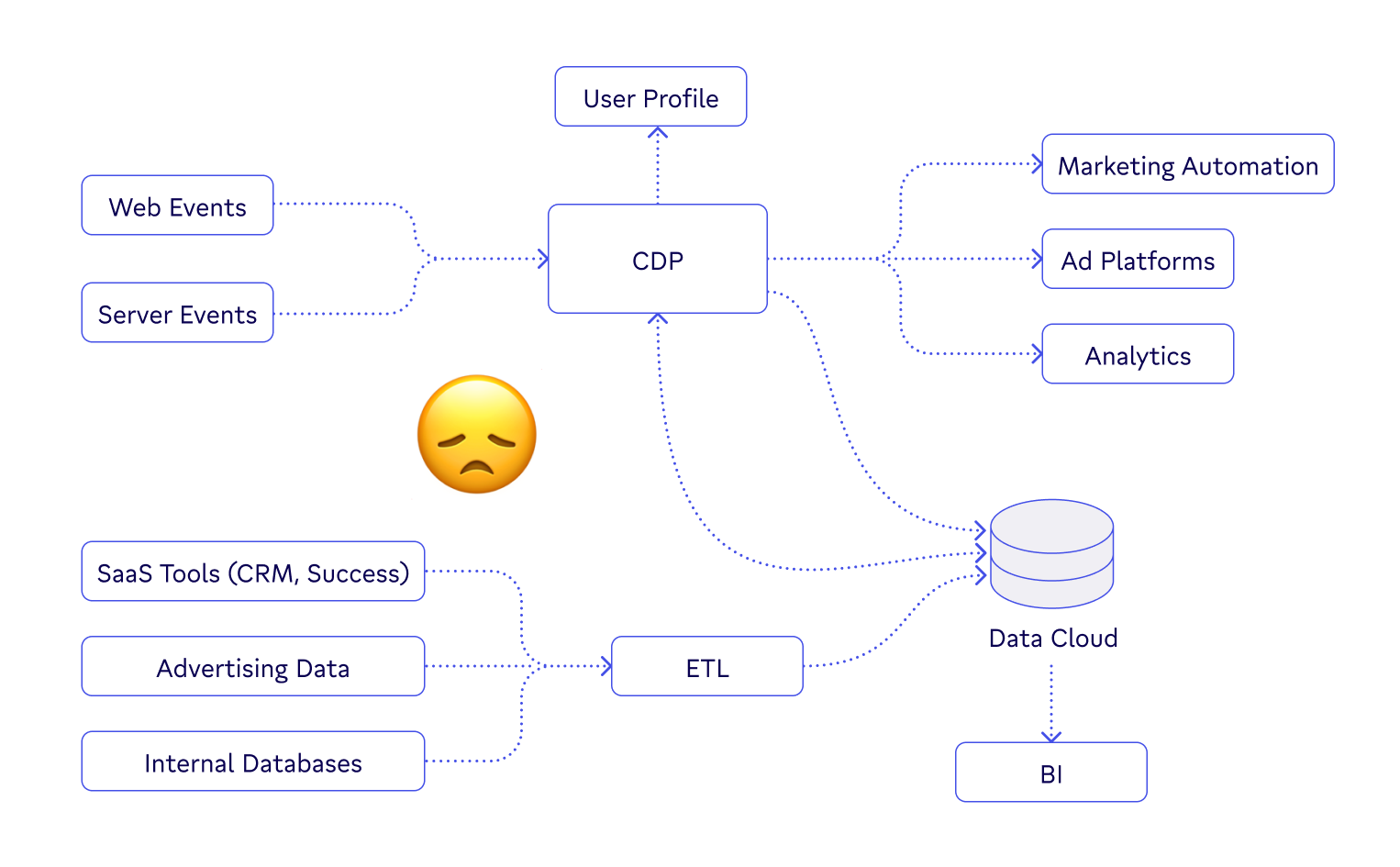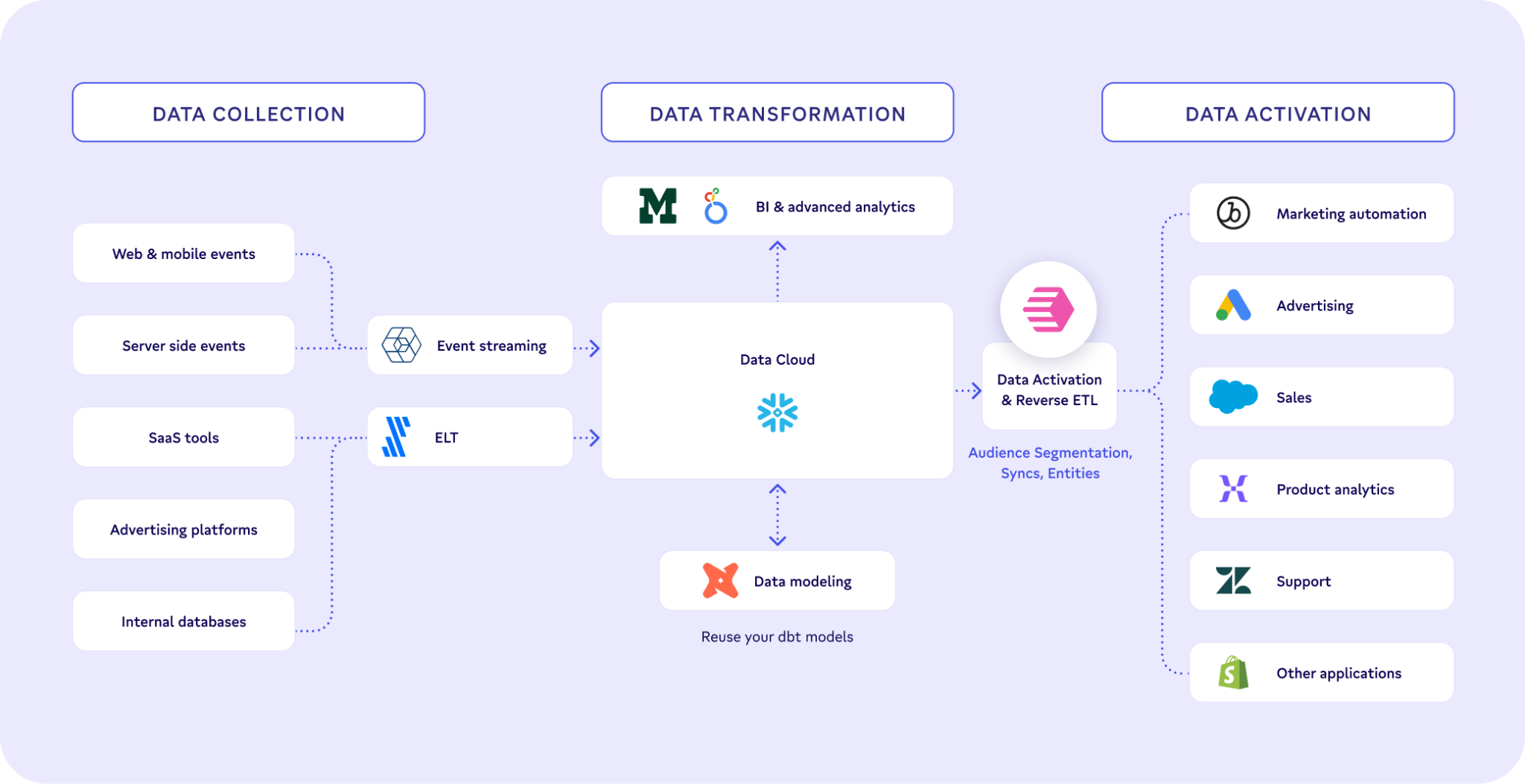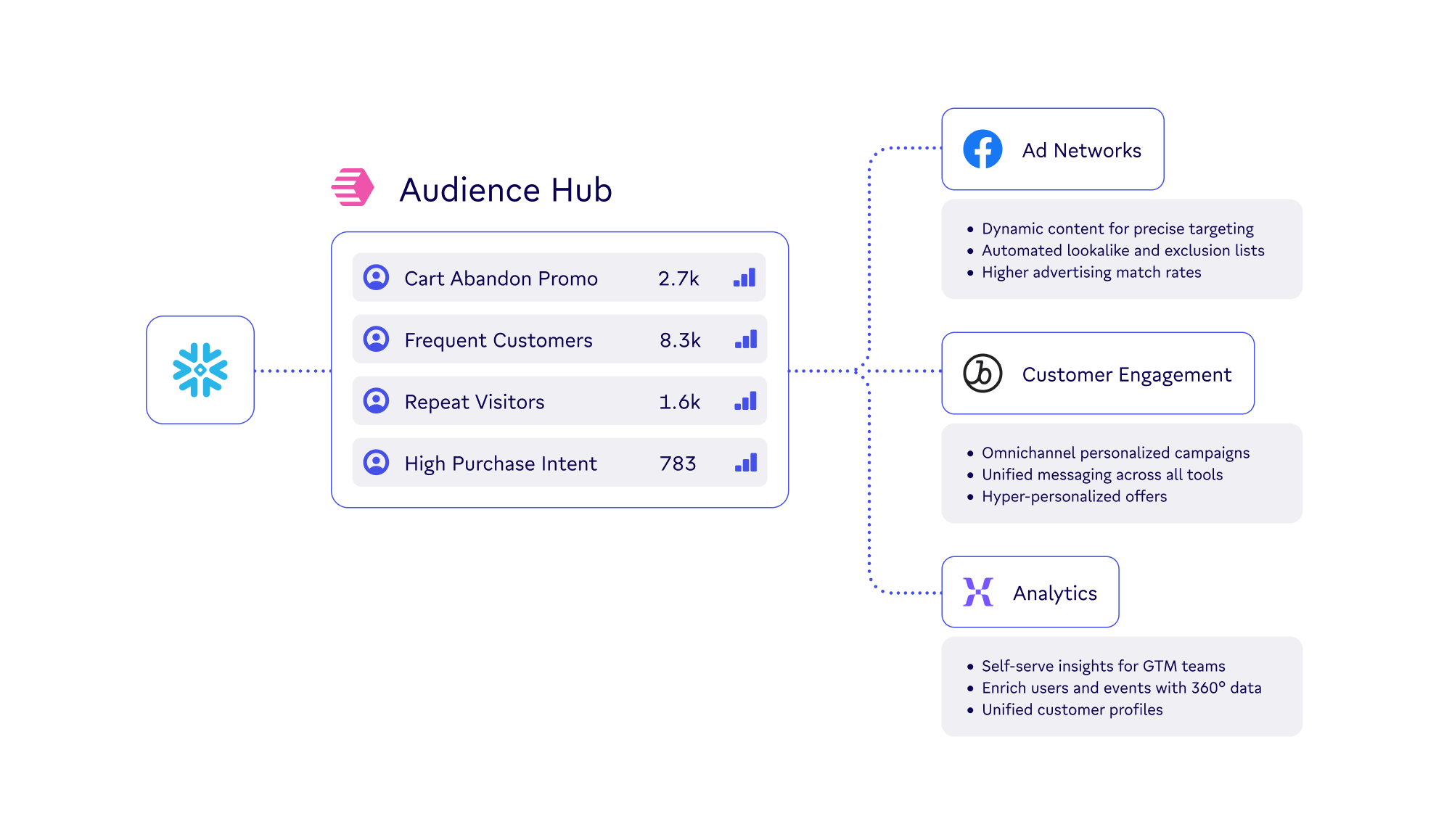Marketers today have more customer data than ever before, making it possible to precisely target customers based on CRM data, purchase history, support interactions, and activity on a website, app, or social media.
However, marketers still struggle to activate cross-channel personalized experiences because they lack access to a single unified view of their customers.
The volumes of customer data coming from an explosion of marketing tools – now 11,038 and counting – and increasing privacy regulation mean that marketing teams can no longer rely on the martech platforms of the past to manage customer data.
Enter the Composable Customer Data Platform – the new foundation for data and marketing teams to activate data together, centered around the Snowflake Data Cloud.
On the Snowflake blog 👉 Visual Segmentation for the Data Cloud with Census Audience Hub
The evolution of CDPs
A CDP is an all-in-one data solution for marketing teams, providing data ingestion, modeling, and activation features. However, customers who adopt off-the-shelf CDPs struggle with their rigid data models, long onboarding times, and redundancies across analytics and marketing tools. In fact:
- Only 1% of CDP owners believe their CDP meets current and future needs.
- Only 29% are satisfied with their CDP’s customer segmentation capabilities.
- Only 22% are satisfied with their CDP’s personalization capabilities.
As business use cases have become more complex and the Snowflake Data Cloud has emerged as the central repository for customer data and analytics, companies discovered that they had two sources of truth for customer data: A fragmented version in the CDP and a complete version in Snowflake.

To avoid creating separate data silos in a traditional CDP, organizations began leveraging Census to activate customer data directly from Snowflake. With the addition of other best-in-class components like Fivetran for ELT, dbt for data transformation, and Snowplow for event collection, a more robust marketing platform — the Composable CDP — was born.

Download ebook 👉 The Composable CDP: Powering Customer 360 with Snowflake
The rise of the Composable CDP
A Composable CDP shares similar goals with traditional CDPs but differs in architecture. Instead of ingesting a copy of data, a Composable CDP leverages existing data infrastructure to power marketing personalization and customer engagement.
Census Audience Hub is the activation layer that helps marketers unleash the power of their customer data. It provides a suite of no-code features for marketers to create, explore, and activate dynamic audience segments with their Customer 360 data in Snowflake.

After creating audiences, automated Reverse ETL syncs enable marketers to keep their audiences up-to-date in 200+ marketing and advertising tools like Braze, Iterable, HubSpot, Salesforce, and Google Ads.
Benefits
Using a Composable CDP instead of a traditional CDP has these advantages:
- Completeness: Data from across the entire organization, including events, customer information, offline data, and third-party datasets, is consolidated into a complete Customer 360 view.
- Flexibility: Composable tools are designed to integrate with Snowflake and speak SQL as their common language, offering greater flexibility in data modeling, transformation, and vendor selection.
- Cost savings: Organizations can avoid the costs associated with building and maintaining duplicate data silos, while leveraging Snowflake’s unlimited storage and data history.
- Faster time-to-value: Activating the existing data in Snowflake is faster than implementing a traditional CDP, which can often take 6 months or more.
- Consistent metrics: Since Composable CDPs activate data from the organization’s source of truth, it’s easier to ensure that metrics are consistent across BI dashboards and customer-facing tools.
- Privacy and security: Off-the-shelf CDPs replicate sensitive customer data into their data store, creating additional privacy and security risks.
See it in action
Leading companies have adopted the Composable CDP approach to drive more business impact with their data. At Census, we’ve helped B2B and B2C companies target, personalize, and unify customer experiences.
See how Canva, Zip, and HOVER leveraged Census on top of Snowflake.👇
- Canva empowered its lifecycle marketing team to run segmentation experiments faster with better data, resulting in more personalized, targeted experiences for its 125+ million users.
💡 Why did Canva build a Composable CDP with Census, Fivetran, and Snowflake? Find out here.
- Zip used Audience Hub to build more granular audiences they weren’t able to access before, and unified targeted customer offers between Braze and the Zip app.
- HOVER activated new customer attributes in Braze to send targeted alerts with less than a day of turnaround time, resulting in double their monthly sales meetings.
What’s next? The future of MarTech is composable
In today's data-driven world, organizations need to activate the full potential of their customer data as their competitive advantage.
The Composable CDP is a massive step forward in bridging the gap between data and marketing teams, bringing them together on the same platform towards the same business goals.
Monolithic, one-size-fits-all solutions are no longer the best choice for organizations to activate the potential of their customer data. Instead, by leveraging the newest innovations in the Snowflake Data Cloud, companies can build the most effective marketing platform that unifies customer experiences across all channels.
🚀 Ready to build a best-in-class Composable CDP with Snowflake? Get a personalized onboarding of Census or start a free trial today.


















